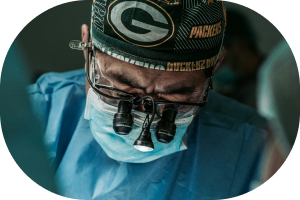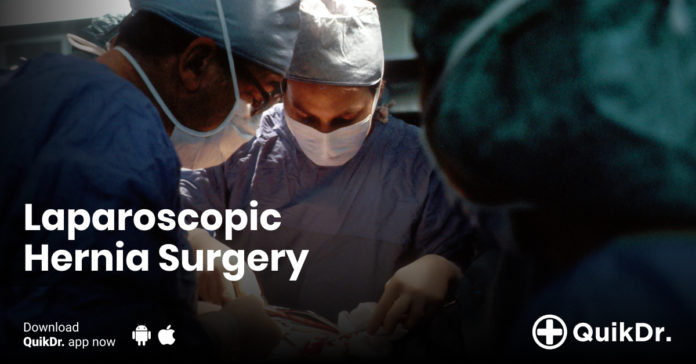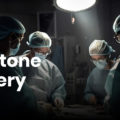What is Hernia
The primary method for addressing a hernia is through surgery, which is the most frequently employed treatment. In the case of a hernia, an organ protrudes through the muscular or tissue wall that typically contains it. Hernias often develop in the abdomen or groin. The another name of hernia surgery is herniorrhaphy, involves the surgeon repositioning the organ and herniated tissue, fortifying the surrounding barrier with stitches or surgical mesh.
Factors That Affect Hernia Cost
The cost of Hernia Surgery may vary for each individual. The range is not usually fixed and depends upon multiple factors. Common factors that affect Hernia surgery cost, include:

- Type of Hernia Mesh used
- Consultation fees of the laparoscopic surgeon
- Choice of hospital – govt or private
- The cost of anesthesia or anesthesiologist
- Transportation charges [to and from the hospital]
- Type of the surgery performed – open or minimally invasive
- Cost of diagnostic tests and consultation
Side effect of Hernia surgery
Hernia surgery, like any medical procedure, can have potential side effects and risks. It’s important to note that the majority of people who undergo hernia surgery experience positive outcomes, but complications can occur. Some potential side effects and complications of hernia surgery include:
Pain and Discomfort: It is normal to experience some pain and discomfort after hernia surgery. This can usually be managed with pain medications prescribed by the surgeon.
Swelling and Bruising: Swelling and bruising around the surgical site are common and usually temporary.
Infection: There is a risk of infection at the surgical site. Signs of infection include increased redness, swelling, warmth, or discharge. If these symptoms occur, it’s important to contact your healthcare provider.
Bleeding: In rare cases, there may be excessive bleeding during or after surgery, which may require additional medical attention.
Hematoma or Seroma Formation: A hematoma is a collection of blood outside of blood vessels, and a seroma is a collection of clear fluid. These fluid collections may occur at the surgical site.
Nerve Damage: There is a small risk of damage to nearby nerves during surgery, which could lead to numbness or tingling in the affected area.
Recurrence: Despite successful surgery, there is a chance that the hernia may recur, especially if the repair is under significant stress or strain.
Chronic Pain: Some individuals may experience chronic pain after hernia surgery, which could be related to nerve irritation or other factors.
Adverse Reaction to Anesthesia: Complications related to anesthesia, such as an allergic reaction or respiratory issues, are rare but possible.
Mesh Complications: If surgical mesh is used in the repair, there is a small risk of complications related to the mesh, such as infection, mesh migration, or a foreign body reaction.

Complications of Hernia
When it comes to health concerns, hernias are not to be taken lightly. This seemingly harmless condition can lead to a variety of complications if not addressed promptly and effectively. In this article, we will explore the potential complications of hernias, shedding light on the importance of early detection and appropriate medical intervention.
1.Incarceration
Incarceration is a term used to describe the situation when a portion of an organ or tissue becomes trapped within the hernia sac, leading to a potentially dangerous obstruction. This complication can occur in different types of hernias, such as inguinal hernias, femoral hernias, or umbilical hernias.
- Incarceration can cause severe pain and discomfort in the affected area.
- The trapped organ or tissue may undergo ischemia, a condition characterized by inadequate blood supply, leading to tissue damage.
- In some cases, the blood supply to the trapped organ can become completely cut off, resulting in tissue necrosis and potential organ dysfunction.
- Immediate medical attention is crucial when incarceration occurs to prevent further complications.
2. Strangulation
Strangulation is a severe complication that can arise when the blood supply to the trapped organ or tissue within the hernia sac is completely cut off. This condition requires immediate medical intervention as it poses a significant risk to the patient’s health and well-being.
- Strangulation can occur when the hernia becomes irreducible, meaning it cannot be pushed back into its normal position.
- The lack of blood supply can lead to ischemia and tissue necrosis.
- Without prompt treatment, strangulation can result in life-threatening conditions, such as sepsis or gangrene.
- Symptoms of strangulated hernia include intense pain, nausea, vomiting, fever, and rapid heart rate.
3. Recurrence
Recurrence refers to the reappearance of a hernia after it has been repaired surgically. Although surgical procedures aim to correct the structural abnormalities that cause hernias, there is always a likelihood of recurrence, especially if certain factors are not adequately addressed.
- Factors that can contribute to hernia recurrence include obesity, smoking, poor nutrition, and excessive straining.
- Inadequate healing of the surgical site can also increase the risk of recurrence.
- Recurrent hernias may require additional surgeries, prolonging the recovery process and posing potential complications.
- Proper post-operative care, including lifestyle modifications and adherence to medical instructions, can help decrease the chances of recurrence.
In conclusion, hernias can lead to various complications that require medical attention. Incarceration, strangulation, and recurrence are among the potential challenges associated with hernias. Early detection, timely medical intervention, and lifestyle modifications can play a crucial role in preventing and managing these complications. If you suspect a hernia or experience any concerning symptoms, it is essential to consult with a healthcare professional promptly. Remember, your well-being is too important to be taken lightly.

What are the causes of hernia?
As mentioned earlier, the main cause for hernia is a weakness or hole in the muscular layer. Past abdominal surgeries can also contribute to the occurrence of hernias and is termed as incisional hernia.
Hernia can be exacerbated by:
- Heavy weight lifting.
- Chronic constipation.
- Chronic cough, which can put pressure on the abdomen.
- Straining while passing motion or urine.
- Overweight / Obesity.
- Smoking.
Types of Hernia
Based on the location of the site of hernia, hernia can be named into different types:
Inguinal Hernia – Mostly occurring in men, when the intestine or bladder protrudes into the inguinal canal.
Femoral Hernia – Most common in women, and usually located at the upper part of the thigh.
Epigastric Hernia – One that occurs in the epigastric region of the abdomen, located above the belly button.
Hiatal Hernia – Occurs when the stomach protrudes through a weak spot in the diaphragm.
Incisional Hernia – Occurs usually after an abdominal surgery due to the surgical wound not healing completely.
Umbilical Hernia – Occurs when the tissues in the body protrudes through a weak spot in the belly button, also called umbilicus.

Treatment for Hernia
It is always advisable to go for early treatment of hernia to prevent further complications. Treatment measures include open repair of hernia or laparoscopic repair of hernia.
Open repair of hernia needs a large cut in the abdomen and the surgeon performs the repair under direct vision. Open repair carries the disadvantages of the patient getting a large cut on the abdomen, more time for healing, increased stay in the hospital and significant pain for many weeks.
Laparoscopic repair of hernia on the other hand is performed through keyhole incisions, which are very small cuts, with the help of an instrument called laparoscope. Laparoscopic Surgery is the modern innovation in the medical field and offers several advantages, the major being small incisions, reduced hospital stay of 2 – 3 days, faster recovery and very less pain.
For adults, a mesh is placed from inside to give strength to the weak muscle and to cover the hole of hernias.
In children, stitching and closing the hole is sufficient.
Generally, one or two days of hospitalization is sufficient for laparoscopic surgery





